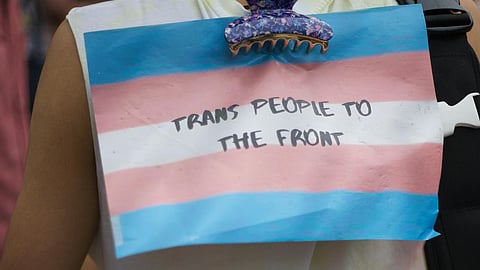Trans women in India face stigma at home, school, work, and healthcare: study
NEW DELHI: Trans women in India face stigma at home, in schools, at work, and in healthcare, leading to social exclusion, poor mental health, and limited opportunities, according to a latest study.
As a result, trans women experience high rates of depression, anxiety, and suicidal thoughts, which are linked to rejection, harassment, and systemic barriers.
The researchers from the George Institute for Global Health, in collaboration with global partners, emphasized the urgent need for inclusive policies, better support systems, and focused research to address these challenges. The study calls for action to tackle the issues of rejection, discrimination, and social exclusion faced by trans women in India.
The study, published in the journal Wellcome Open Research, highlights that stigma for the estimated 4.8 million transgender people in India begins early in life, especially within families where trans women are often rejected, leading to a loss of self-esteem.
In schools, bullying and harassment force many trans women to drop out, leaving them without education or stable employment. As a result, many are left with limited options, often resorting to begging or sex work to survive.
Healthcare discrimination also emerges as a major issue. Stories of mistreatment by hospital staff and a lack of understanding from healthcare providers discourage many trans women from seeking medical help. "As a result, their physical and mental health needs often go unmet. These experiences take a significant toll on their mental well-being, contributing to high rates of depression, anxiety, and suicidal thoughts among trans women," the study stated.
Researchers drew on the experiences of trans women to highlight their daily struggles. They found that the lack of acceptance from families and society affects self-esteem, leaving scars that are hard to heal.
“This trauma is worsened by exclusionary societal norms and policies that continue to marginalize them. While resilience can protect mental health, systemic barriers often limit trans women's ability to build it,” the study added.
For such individuals, social support is a beacon of hope. “Acceptance, education, and opportunities for employment are powerful tools that can foster resilience and promote mental well-being. However, in India, where an estimated 4.8 million transgender people live, such opportunities remain scarce,” it concluded.

